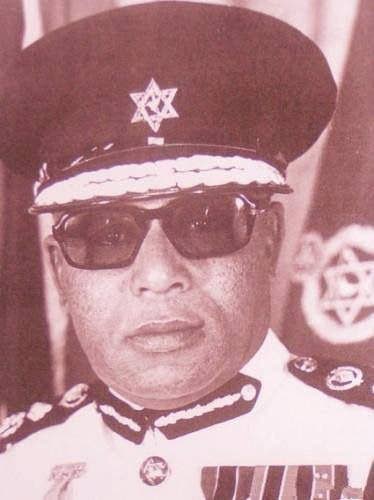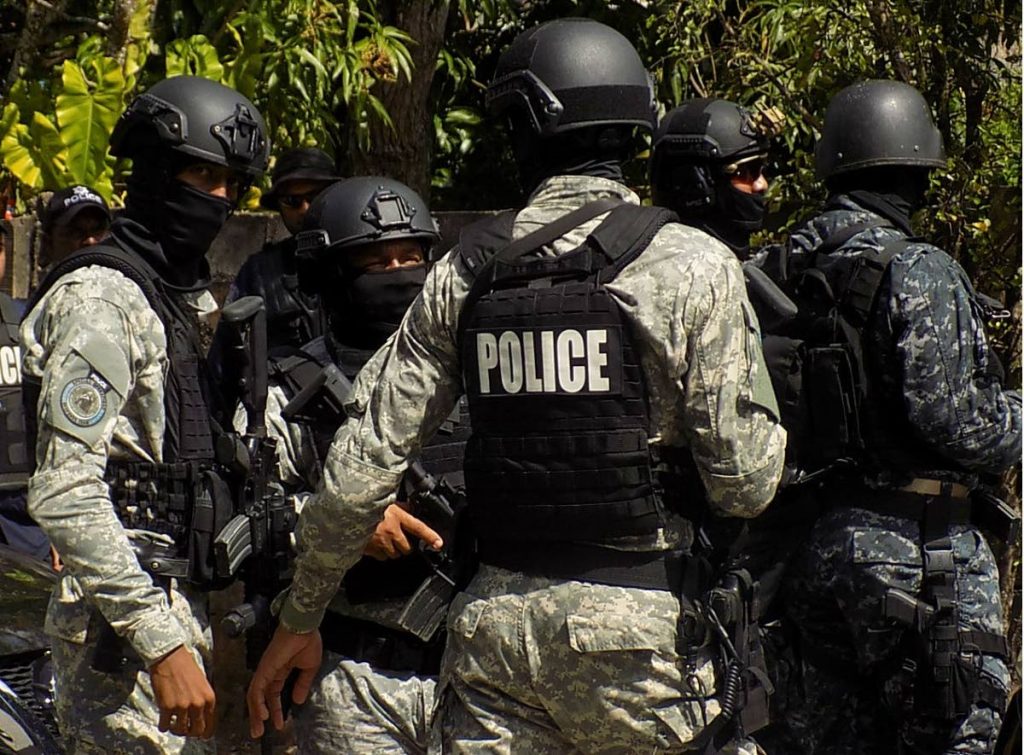When the smoke cleared: corruption cloud over police

Confidence in the police service took a bullet to the chest last week, when video evidence of the police killing of three men sparked a wave of protests and anger across the country.
The cry for help from communities long complaining of police brutality, unjust and unequal treatment and systemic injustice spilled onto the streets of Port of Spain and elsewhere. It triggered empathy from some, and a generally measured, but sometimes violent response from officers sworn to protect and serve.
Since its inception in 1966, elements of the police service have been accused of being involved in serious criminal enterprise, including murder, drug trafficking, prostitution and framing those who opposed them.
The damning Scott Drug report in the 1980s gave the public the first real glimpse of just how corrupt the police service was at that time. Commissioner Randolph Burroughs, admired and feared, ended up leaving office in disgrace after being sacked and charged with conspiracy to murder.
Back then, Burroughs, who was reported to be the brother-in-law of the drug kingpin Dole Chadee, who was later executed, hand-picked men to form a unit known as the Flying Squad, answerable to only him.
That unit was responsible for a significant number of fatal police killings, and media reports still obscured in police jargon today echo those stories of how, “when the smoke cleared,” the victims were dead.
There was no independent oversight body to question the actions of the police then such as the Police Complaints Authority, and Burroughs had a close relationship with the media and often dictated stories to seasoned crime reporters.
In the ensuing 40 years, several other men have filled the chair of top cop, from Jim Rodriguez, Jules Bernard, who once described himself as a “toothless bulldog,” Noor “Kenny” Mohammed, the affable Hilton Guy, Everald Snaggs, James Philbert, the Canadian Dwayne Gibbs, Stephen Williams, and now ex-soldier Gary Griffith – each carrying the burden of dealing with the burgeoning crime problem – which has no doubt infiltrated and corrupted some of the very men and women under their command.
Under the Patrick Manning administration, between 2001-2005, a bold step was taken of forming what many described as a parallel police service in 2003, when the Special Anti-Crime Unit of TT (SAUTT) was established under the command of Brig Peter Joseph. Officers assigned to the unit had to undergo mandatory lie detector tests and were equipped with the best weaponry, vehicles, technology available at the time and superior salaries.

The UNC, under Kamla Persad-Bissessar, disbanded the entity, on the basis that it was not producing results in making a significant dent in crime commensurate with the millions being spent on it. She also accused the unit of spying on political opponents of the PNM.
Under Griffith’s command as CoP, another entity, SORT (Special Operations Response Team) has been established as the go-to elite unit to eliminate criminal threats.
Griffith served as national security adviser and national security minister under the Persad-Bissessar administration until he was fired in February 2015, after he sided with current director of Police Complaints Authority (PCA) David West. The latter complained that he had been asked by former attorney general Anand Ramlogan to withhold a witness statement in a defamation lawsuit filed by then Opposition Leader Dr Rowley, in the infamous Section 34 matter.
Persad-Bissessar called for the resignation of the PCA director and also called on the then acting CoP to investigate claims of witness-tampering by a sitting attorney general, who was relieved of his post in 2015.
Ramlogan was subsequently charged in 2017 for the offence; the matter is yet to be determined.
Both the civil lawsuit and criminal matter against Ramlogan is scheduled for hearing on August 12, two days after the general election.
The Opposition supported both the appointment of Griffith as commissioner in 2018 and the reappointment of West as director of the PCA in 2019 for another five-year term.
Last Thursday, the Prime Minister, addressing the triple police killings in Morvant and the resulting street protests which saw violent clashes with police over two days, criticised the PCA for not functioning as it should. The PCA is the only independent body charged with investigating alleged misconduct – including possibly committing murder – by the police.
The PCA, in response, complained that successive administrations over the last eight years had not given it sufficient legal tools to deliver speedier resolutions to the growing number of reports of police misconduct and fatal police shootings.
In 1993, the PCA, a civilian oversight body, was set up to monitor the investigation of complaints made against police officers. But even though the legislation was amended seven years later, the co-operation from police investigators and the PCA remains strained and often leads to lengthy delays in the completion of matters.
Amnesty International has consistently over the last two decades expressed grave concerned about the lack of transparency in police investigations into alleged violations and believes the secrecy of police internal investigations undermines public confidence in the complaints and disciplinary process as well as the investigative process itself.
In the history of the police service, only two officers were ever convicted for fatal shootings while they were on duty. In March 2006, PC Dave Burnett was found guilty of murdering Kevin Cato on January 25, 2004 during a Carnival party in Chaguaramas and was sentenced to death. In April 2004, PC Mihiset Greene was convicted of manslaughter for killing farmer Neil Sutherland in April 1995 in Matelot. Greene lost his appeal against conviction in January 2006 and was ordered to serve a 10-year sentence.

Comments
"When the smoke cleared: corruption cloud over police"